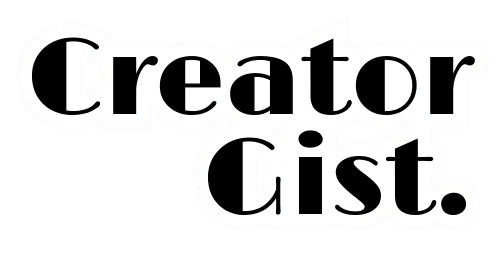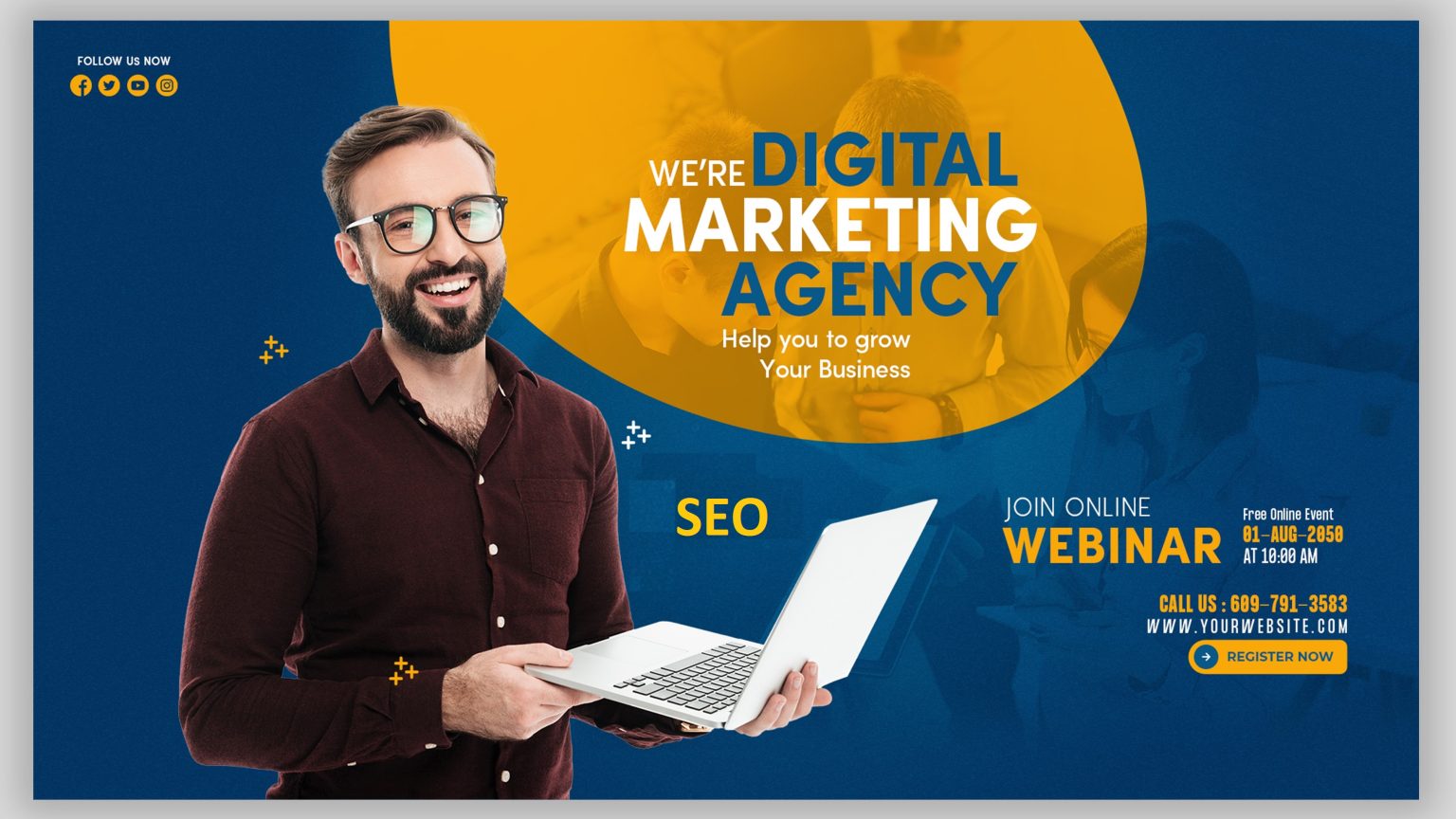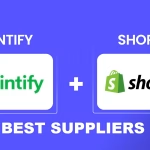In today’s competitive digital ecosystem, SEO is more important than ever. If you’re a digital marketing expert with a knack for optimizing websites, why not turn your skills into a thriving business?
This guide will walk you through the steps to launch your SEO consulting firm.
Understanding the SEO Consulting Outlook
Defining SEO Consultancy Services
Before we dive into SEO consulting let’s understand what SEO exactly is.
In my view, SEO is Your digital compass, guiding you through the vast ocean of online visibility. Think of it as a treasure map, leading you to hidden gems of organic traffic and potential customers.
It’s the art and science of making your website or social media platforms shine brightly in search engine results, ensuring that your message is heard loud and clear in the digital wilderness.
Yes, SEO doesn’t apply to websites only. Social media platforms like YouTube and Pinterest also require SEO for content to be more visible.
Now, SEO consultancy involves guiding businesses to improve their online visibility.
This service includes:
- Analyzing websites
- Developing strategies
- Implementing SEO practices.
The aim is to boost search engine rankings, attract more traffic, and enhance a brand’s digital presence. SEO consultants often work with content, technical SEO, and link-building. They tailor their strategies to meet client goals, whether that’s to increase sales, generate leads, or improve website user experience.
The Importance of SEO in Today’s Digital Market
In the digital era, SEO is crucial for online success. All businesses, from small local shops to global corporations, need an online footprint. SEO makes sure they show up in search results.
This is why SEO consultants are in demand. They help these businesses climb search rankings. A good SEO strategy can lead to more traffic, sales, and growth. As a consultant, you’d play a key part in this success.
That’s why understanding SEO’s role is the first step in starting your consultancy.
Identifying Your Target Market for SEO Consultancy
Identifying your target market is essential in the SEO consulting business. It defines your service focus and shapes your marketing efforts.
To pinpoint your market, consider the following factors:
- Business Size: Are you catering to small local businesses or large enterprises?
- Industry Niche: Some SEO consultants specialize in particular industries such as healthcare, e-commerce, or legal firms.
- Location: Will you offer services locally, nationally, or internationally?
- Client Knowledge: Are your clients familiar with SEO, or will you be educating them from the ground up?
- Budget Levels: What is the financial capacity of your potential clients?
Understanding these aspects helps tailor your consulting to meet the specific needs of your clients. Moreover, it enhances the effectiveness of your SEO strategies and business growth.
Setting Up Your SEO Consultancy
This comprehensive overview guide will walk you through every step, from honing your skills to landing your first big client. Let’s go.
1. Master the Art of SEO
Before you can sell SEO services, you need to become an SEO wizard yourself.
Key areas to focus on:
- On-page SEO (meta tags, content optimization, internal linking)
- Off-page SEO (link building, social signals, local citations)
- Technical SEO (site speed, mobile optimization, structured data)
- Content strategy (keyword research, content creation, E-A-T principles)
Pro tip: Stay updated with industry blogs like Search Engine Journal, Moz, and Google’s own Search Central Blog.
2. Define Your Business Model
Decide what kind of SEO consultancy you want to run.
Service options:
- Full-service SEO (comprehensive strategies)
- Specialized services (e.g., local SEO, e-commerce SEO, link building)
- SEO audits and strategy development
- SEO training and workshops
Pricing models:
- Project-based pricing
- Monthly retainers
- Performance-based pricing (be cautious with this one)
Example: You can start an SEO agency that focuses exclusively on local SEO for restaurants. By niching down, you can become the go-to expert in your city, charging premium rates for your specialized knowledge.
3. Legal Groundwork: Setting a Solid Foundation
Don’t let the legal stuff scare you – it’s easier than you think! In this case, you can use Taylor Brands or Zen Business to form your own LLC or business.
There is no need to consult a local attorney, these agencies will streamline the business-building process with simple every step of starting, managing, and growing a business.
Steps to take:
- Choose a business structure (LLC is popular for its liability protection)
- Register your business name
- Obtain an EIN (Employer Identification Number)
- Open a business bank account
- Consider professional liability insurance
4. Branding: Make Your Mark in the Digital World
Your brand is more than just a logo – it’s your agency’s personality.
Branding checklist:
- Create a memorable agency name
- Design a professional logo
- Develop a cohesive visual identity (colors, fonts, imagery)
- Craft your unique selling proposition (USP)
- Define your brand voice and messaging
Example: “SmartSites” uses a smart-themed logo, and smart onboarding, tech-savvy language to appeal to their target market of tech startups.
5. Build a Killer Online Presence
Practice what you preach by creating an SEO-optimized online presence for your agency.
Must-haves for your online presence:
- Professional website with:
- Service pages
- Case studies
- Blog (showcase your expertise)
- Portfolio (Showcase your work)
- Contact form
- Google My Business listing
- Social media profiles (focus on LinkedIn and X [Twitter] for B2B)
Keyword strategy: Target phrases like “SEO agency [your city],” “best SEO consultant for [your niche],” and “SEO services for [target industry].”
6. Invest in Essential SEO Tools and Software
The right tools can make or break your SEO consultancy. This is one of the most crucial sectors of your SEO consulting business.
Let’s break down the must-have SEO tools and software that’ll help your agency deliver killer results for your clients. Plus, I’ll throw in my two cents on each category because, let’s face it, not all tools are created equal.
- Keyword Research Tools
What they do: These bad boys help you uncover the golden nuggets of keywords that your client’s target audience is searching for.
Top picks:
- SEMrush
- Ahrefs
- Moz Keyword Explorer
- Google Keyword Planner (oldie but goodie!)
How they benefit the agency: Save time and brainpower by quickly identifying high-value keywords and spotting gaps in your clients’ strategies.
How they benefit the client: Target the right audience with content that answers their burning questions, leading to higher rankings and more qualified traffic.
My take: I’m a huge fan of SEMrush. Its intuitive interface and comprehensive data make keyword research feel like a breeze rather than a chore. But hey, test drive a few and see which one vibes with your workflow!
- On-Page SEO Tools
What they do: These tools help you optimize individual web pages to make them more search engine-friendly.
Top picks:
- Rankmath | Yoast SEO (for WordPress)
- Screaming Frog
- SEOquake
- Surfer SEO
How they benefit the agency: Streamline the on-page optimization process, allowing you to tackle more pages in less time.
How they benefit the client: Improved on-page elements lead to better search engine visibility and potentially higher click-through rates.
My take: Screaming Frog is my go-to for comprehensive site audits. It’s like having a microscope for your website! But for day-to-day optimization, Rankmath and Yoast SEO are hard to beat if you’re working with WordPress sites.
- Backlink Analysis Tools
What they do: These tools help you dive deep into your clients’ backlink profiles and spot link-building opportunities.
Top picks:
- Ahrefs
- Majestic
- Moz Link Explorer
- SEMrush
How they benefit the agency: Easily identify toxic links to disavow and find new link-building opportunities to boost your clients’ authority.
How they benefit the client: A clean and strong backlink profile can significantly improve domain authority and search rankings.
My take: Ahrefs is the king of backlink analysis in my book. Their data is comprehensive and regularly updated. But don’t sleep on Majestic’s Trust Flow metric – it’s a gem for quickly assessing link quality.
- Rank Tracking Tools
What they do: Keep tabs on how your clients’ websites are performing in search engine results pages (SERPs).
Top picks:
- SERP Robot
- AccuRanker
- SEMrush Position Tracking
- Ahrefs Rank Tracker
How they benefit the agency: Easily monitor progress and demonstrate the value of your SEO efforts to clients.
How they benefit the client: Clear, visual representation of their website’s performance in search results over time.
My take: I’m partial to AccuRanker for its accuracy and daily updates. But let’s be real – most clients love seeing those green arrows 📈 pointing up, regardless of the tool you use.
- Technical SEO Tools
What they do: These tools help you dive into the nitty-gritty of website performance, crawlability, and indexation issues.
Top picks:
- Screaming Frog
- DeepCrawl
- Sitebulb
- Google Search Console (free and essential)
How they benefit the agency: Quickly identify and troubleshoot technical SEO issues that might be holding back your clients’ websites.
How they benefit the client: Improved website health leads to better crawling and indexing, which can result in higher rankings and more organic traffic.
My take: Screaming Frog is my ride-or-die for technical SEO audits. It’s like a Swiss Army knife for SEO geeks. But don’t underestimate the power of Google Search Console – it’s straight from the horse’s mouth and offers invaluable insights.
- Content Optimization Tools
What they do: Help create and optimize content that resonates with both search engines and human readers.
Top picks:
- MarketMuse
- Clearscope
- Frase
- Surfer SEO
How they benefit the agency: Streamline the content creation process and ensure that every piece of content is optimized for target keywords.
How they benefit the client: Higher-quality, more relevant content that has a better chance of ranking well and engaging their target audience.
My take: I’m loving what Surfer SEO brings to the table lately. It’s like having an SEO co-pilot when you’re crafting content. But remember, these tools are guides – don’t let them stifle your creativity!
- Local SEO Tools
What they do: Optimize your clients’ online presence for local search results.
Top picks:
- BrightLocal
- Moz Local
- Yext
- Google My Business (free and essential for local businesses)
How they benefit the agency: Manage multiple local listings efficiently and track local search performance.
How they benefit the client: Improved visibility in local search results, which can drive more foot traffic and local customers.
My take: BrightLocal is my go-to for managing local SEO campaigns. Their reporting features make it easy to show clients the impact of your work. But never underestimate the power of a well-optimized Google My Business listing – it’s free real estate in the search results.
Let’s expand our SEO agency toolkit to include some essential business operating software. After all, running a successful agency isn’t just about SEO wizardry – it’s also about smooth operations and keeping clients happy. Here’s an addition to our ultimate toolkit:
- Business Operating Software
What they do: These tools help you manage the day-to-day operations of your SEO agency, from project management to client communication and billing.
Top picks:
a) Project Management:
- Asana
- Trello
- Monday.com
- ClickUp
How they benefit the agency: Keep all your SEO projects organized, assign tasks, track progress, and never miss a deadline.
How they benefit the client: Smoother project execution, better communication, and on-time delivery of SEO results.
My take: I’m a big fan of ClickUp. It’s like Asana and Trello had a super-powered baby. The customization options are insane, and you can tailor it to fit your agency’s workflow.
b) Invoicing and Accounting:
- QuickBooks
- FreshBooks
- Wave (great for smaller agencies)
- Xero
How they benefit the agency: Streamline your billing process, track expenses, and keep your finances in check.
How they benefit the client: Professional, timely invoicing and clear breakdown of services rendered.
My take: FreshBooks has stolen my heart with its user-friendly interface and time-tracking features. It’s a lifesaver for agencies billing by the hour.
c) Communication:
- Slack
- Microsoft Teams
- Zoom
- Loom (for video messaging)
How they benefit the agency: Improve internal communication and collaboration, especially for remote teams.
How they benefit the client: Easier, more direct communication channels with your agency team.
My take: Slack is my ride-or-die for team communication. The integrations are killer, and it keep email clutter to a minimum. But Loom is my secret weapon for explaining complex SEO concepts to clients – a quick screen recording can save a thousand words.
d) Customer Relationship Management (CRM):
- HubSpot CRM
- Pipedrive
- Salesforce
- Zoho CRM
How they benefit the agency: Keep track of leads, manage client relationships, and streamline your sales process.
How they benefit the client: More personalized service and smoother onboarding experience.
My take: HubSpot CRM is hard to beat, especially for agencies. The free version is surprisingly robust, and it integrates beautifully with their marketing tools as you grow.
e) Enterprise Resource Planning (ERP):
- NetSuite
- Odoo
- SAP Business One
- Microsoft Dynamics 365
How they benefit the agency: Integrate various business processes – from HR to supply chain management – into one system.
How they benefit the client: Indirectly benefits clients through more efficient agency operations and resource allocation.
My take: For most SEO agencies, a full-blown ERP might be overkill. But if you’re scaling fast, Odoo is worth a look. It’s modular, so you can start small and add features as you grow.
f) Time Tracking:
- Toggl
- RescueTime
- Harvest
- Clockify
How they benefit the agency: Accurately track time spent on client projects, improve productivity, and inform your pricing strategies.
How they benefit the client: More transparent billing and insights into how time is spent on their projects.
My take: Toggl is my go-to. It’s simple and intuitive, and the reports are great for showing clients where their money is going. Plus, the browser extension makes it super easy to use.
Let’s expand our toolkit even further to include essential services that can elevate an SEO agency’s offerings. These additional services can help create a more comprehensive digital marketing package for clients.
- Web Hosting and Domain Services
What they do: Provide the foundation for your client’s online presence.
Top picks:
- WPX Hosting
- Bluehost
- SiteGround
- Namecheap (for Domain Registration)
- WP Engine (for WordPress sites)
- Cloudflare (for CDN and security)
How they benefit the agency: Offer a one-stop shop for clients, potentially increasing revenue and simplifying management.
How they benefit the client: Faster, more secure websites with reliable uptime, which indirectly boosts SEO performance.
My take: I’m a big fan of Bluehost for its speed, additional resources, and customer support. But for WordPress-heavy clients, WPX Hosting is hard to beat. And Cloudflare? It’s like a shield for your clients’ sites – a must-have in today’s security landscape.
When it comes to domain registration, Namecheap is the ‘GOAT’. Godaddy used to be my favourite but their domain repossession issues dropped their trust meter.
While GoDaddy has defended its domain repossession policy, many customers believe that it could be improved to provide greater transparency and fairness. It’s important for customers to carefully review the terms and conditions of their domain registration and to understand the potential risks associated with domain repossession.
Alternatively to avoid issues in the future, use Namecheap or Domain.com
- Email Marketing Platforms
What they do: Allow you to create, send, and analyze email campaigns.
Top picks:
- ConvertKit
- Mailchimp
- Beehiiv
- Constant Contact
- Sendinblue
How they benefit the agency: Expand your service offerings and help clients nurture leads generated through SEO efforts.
How they benefit the client: Turn website visitors into loyal customers through targeted email campaigns.
My take: Mailchimp is my go-to for its user-friendly interface and robust free plan. But Beehiiv and ConvertKit are gaining ground fast, especially for clients in the content creation space. It’s all about finding the right fit for each client’s needs and budget.
- Social Media Management Tools
What they do: Schedule posts, monitor engagement, and analyze social media performance.
Top picks:
- Hootsuite
- Buffer
- Sprout Social
- Social Snap (WordPress Plugin)
- Later (great for Instagram)
How they benefit the agency: Streamline social media management for multiple clients and demonstrate the connection between social signals and SEO.
How they benefit the client: Consistent social media presence and better integration of social strategies with SEO efforts.
My take: Hootsuite is like the ‘Don’ of social media tools – it does everything pretty well. But for agencies focused on visual content, Later’s Instagram features are chef’s kiss.
- Content Creation and Design Tools
What they do: Help create visually appealing content that complements your SEO strategies.
Top picks:
- Canva
- Adobe Creative Suite
- Jasper AI
- Grammarly
- Hemingway Editor
How they benefit the agency: Produce high-quality content and visuals efficiently, enhancing your SEO deliverables.
How they benefit the client: Better-looking, more engaging content that attracts and retains visitors, improving overall site performance.
My take: Canva is a game-changer for non-designers (like yours truly). It’s so intuitive that even your most tech-challenged clients can use it. And Grammarly? It’s saved my bacon more times than I care to admit. Then there is Jasper, seriously it can generate content perfectly.
- Analytics and Reporting Platforms
What they do: Provide deeper insights into website performance and user behavior.
Top picks:
- Google Analytics (the OG)
- Hotjar
- Databox
- Looker Studio (formerly Google Data Studio)
How they benefit the agency: Create comprehensive, visually appealing reports that demonstrate the value of your SEO efforts.
How they benefit the client: Gain a clearer understanding of their website’s performance and the ROI of their SEO investment.
My take: Google Analytics is non-negotiable – it’s free and powerful. But Hotjar’s heatmaps and user recordings? They’re like having X-ray vision into user behavior. And for creating sexy reports that’ll make your clients go “Wow!”? Looker Studio all the way, baby 😜
- Landing Page Builders
What they do: Create and optimize landing pages for specific campaigns or keywords.
Top picks:
- Unbounce
- Instapage
- Leadpages
- Swipe Pages
How they benefit the agency: Quickly create and test landing pages that align with SEO strategies.
How they benefit the client: Higher conversion rates from organic traffic, maximizing the value of their SEO investment.
My take: Unbounce is my personal favorite for its flexibility and A/B testing capabilities. But Leadpages is a hidden gem for smaller clients – its free plan offers limited features but it’s still a powerful tool for creating landing pages. It’s known for its focus on lead generation and conversion optimization.
Final Take: Phew! That’s a lot of software, right? But here’s the thing – you don’t need ALL of these tools to run a successful SEO agency. Start with the basics and add as you grow. The key is to find tools that work well together and fit your agency’s unique workflow.
Remember, the goal of all this software is to make your life easier and your clients happier. If a tool is causing more headaches than it’s solving, don’t be afraid to ditch it and try something else.
And hey, don’t forget the human touch. While these tools are fantastic for streamlining operations, nothing beats good old-fashioned customer service and SEO know-how. Use these tools to free up more time for strategy, creativity, and building solid client relationships.
So, what’s your tech stack looking like? Are there any game-changing tools you swear by? Share your favorites in the comments – let’s help each other level up our agency game.
7. Develop Irresistible Service Offerings
Create service packages that solve your client’s specific pain points.
Example service packages:
- “Local SEO Booster” for small businesses
- “E-commerce SEO Accelerator” for online stores
- “Content Powerhouse” for blogs and media sites
Each package should include:
- Detailed description of services
- Expected deliverables
- Timeline
- Pricing
Example: The “Local SEO Booster” package includes Google My Business optimization, local citation building, and on-page optimization for 5 key service pages.
8. Set Up Streamlined Business Operations
Efficiency is key to scaling your SEO consultancy.
Operational considerations:
- Establish a dedicated workspace (home office or coworking space).
You can decide to work from home or set up a shop. Let’s face it, an agency with an office, a physical office is more professional and can be more trusted. The best approach though is to start from where you are.
- Set up a professional email address and phone system.
For a professional email address, go with Zoho Business Email. We’ve been using it for several years now and worth it. It’s affordable, they have a free plan for life.
So why Zoho mail? Let’s have a look.
Reason
In the fast-paced world of digital marketing, SEO agencies need reliable, professional communication tools. Enter Zoho Mail – a standout choice for agencies looking to streamline their email workflows and boost productivity.
What is Zoho Mail?
Zoho Mail is:
- A secure, ad-free email hosting service
- Part of the larger Zoho suite of productivity tools
- Designed to meet the needs of businesses of all sizes
Key Benefits for SEO Agencies
Professional Domain-based Email
- Custom email addresses (e.g., name@youragency.com)
- Enhanced brand image and credibility
Advanced Organization and Search
- Efficient management of client communications
- Powerful search features for quick information retrieval
Collaboration Tools
- Shared calendars, contacts, and tasks
- Streamlined project management and reporting
Integration Capabilities
- Seamless connection with other Zoho apps (CRM, Projects, Analytics)
- Integration with popular SEO tools
Security and Privacy
- End-to-end encryption and two-factor authentication
- Ensured confidentiality of client data
Cost-effective Pricing
- Flexible plans for different agency sizes
- Scalable solutions for growing businesses
- Improving Your SEO Agency’s Workflow
Enhanced Communication
- Professional correspondence with clients and partners
- Email templates for consistent outreach
Efficient Project Management
- Organize emails by client or project
- Automated rules for sorting incoming messages
Improved Collaboration
- Easy sharing of important emails and attachments
- Collaborative drafting for proposals and reports
Mobile Accessibility
- On-the-go access via mobile apps
- Stay connected from anywhere
Data-driven Insights
- Track email engagement for outreach campaigns
- Optimize communication strategies with analytics
Verdict
Zoho Mail stands out as the best professional email provider for SEO agencies, offering:
- Powerful features
- Robust security
- Seamless integration capabilities
By implementing Zoho Mail, your agency can:
- Streamline workflows
- Enhance professional image
- Focus on delivering exceptional SEO results
Operations considerations continuation.
- Create templates for
- Client proposals
- Contracts
- SEO reports
- Onboarding documents
Pro tip: Use tools like Zapier to automate repetitive tasks, such as adding new clients to your CRM or creating project boards.
9. Build Your Dream Team
As you grow, you’ll need to expand your team.
Key roles to consider:
- Content writers
- Link building specialists
- Web developers
- PPC specialists (for full-service digital marketing)
- Virtual assistants
Hiring options:
- Full-time employees
- Part-time specialists
- Freelancers and contractors
Example: If you are a solo SEO consultant, start by outsourcing content writing to a freelancer. As your client base grow, bring in a part-time link-building specialist and a virtual assistant to handle administrative tasks.
10. Fund Your SEO Empire
Calculate your startup costs and explore funding options.
Potential startup costs:
- Software and tool subscriptions
- Website hosting and development
- Legal and accounting fees
- Marketing and advertising
Funding options:
- Self-funding (bootstrapping)
- Small business loans
- Angel investors or venture capital (for high-growth plans)
Pro tip: Start lean and reinvest your profits as you grow. Many successful SEO agencies bootstrapped their way to success.
11. Market Your SEO Agency Like a Pro
Use your SEO skills to market your own business.
Marketing strategies:
- Content marketing (blog posts, case studies, whitepapers)
- Social media marketing (focus on LinkedIn for B2B connections)
- Email marketing (nurture leads with valuable SEO tips)
- Networking (join local business groups and attend industry events)
- Public speaking (offer to speak at marketing conferences)
Example: You can grow your SEO agency by writing guest posts for popular marketing blogs, each one showcasing your expertise and linking back to your agency’s website.
12. Land Your First Clients
Develop a robust client acquisition strategy.
Client acquisition tactics:
- Leverage your personal network
- Offer free SEO audits to potential clients
- Create strategic partnerships with web design agencies
- Use LinkedIn to connect with decision-makers in your target industries
- Consider cold outreach (personalized emails or LinkedIn messages)
Pro tip: Don’t underestimate the power of word-of-mouth referrals. Overdeliver for your first few clients and ask for testimonials and referrals.
13. Deliver Results and Scale Your Agency
The key to long-term success is delivering measurable results for your clients.
Best practices for client success:
- Set clear expectations from the start
- Provide regular, detailed reports
- Be transparent about challenges and setbacks
- Continuously educate your clients about SEO
Scaling strategies:
- Systematize your processes
- Invest in team training and development
- Consider white-label partnerships to expand your service offerings
- Explore opportunities for passive income (e.g., SEO courses, ebooks)
Remember, building a successful SEO consultancy takes time, effort, and continuous learning. Stay curious, adapt to algorithm changes, and always put your client’s success first. With persistence and the right strategies, you’ll be well on your way to building a thriving SEO empire.
Now, it’s time to put this knowledge into action. The world of search is waiting for your expertise. Go forth and conquer those SERPs!
Top SEO Consulting Agencies to Learn From
Let’s take a look at some of the best SEO consulting agencies out there and what we can learn from their success. Get inspired.
- Moz (Seattle, Washington, USA)
What they’re known for:
- Industry-leading SEO software
- Comprehensive educational resources
My take: Moz is like the cool teacher you wish you had in school. They’re not just about providing tools; they’re passionate about educating the SEO community.
Lesson for beginners: Never stop learning! The SEO ecosystem is always evolving, so make education a core part of your agency’s culture.
- Distilled (London, UK [with offices in New York and Seattle] )
What they’re known for:
- Creative, out-of-the-box SEO strategies
- Strong focus on content marketing
My take: Distilled is that friend who always thinks outside the box. They’re not afraid to try new things and push the boundaries of traditional SEO.
Lesson for beginners: Don’t be afraid to get creative! Sometimes the most effective SEO strategies are the ones that haven’t been done before.
- SEMrush (Boston, Massachusetts, USA
What they’re known for:
- Comprehensive digital marketing platform
- A data-driven approach to SEO
My take: SEMrush is like a Jack-of-all-trades for digital marketers. They provide a ton of tools and always back up their strategies with solid data.
Lesson for beginners: Let data guide your decisions. It’s easy to get caught up in SEO trends, but numbers don’t lie.
- Ahrefs (Singapore
What they’re known for:
- Powerful backlink analysis tools
- In-depth competitor research capabilities
My take: Ahrefs is that detail-oriented friend who always knows what’s going on. They dig deep into data to uncover insights that others might miss.
Lesson for beginners: Know your competition! Understanding what your rivals are doing can help you stay one step ahead.
- Neil Patel Digital (Los Angeles, California, USA
What they’re known for:
- Personal branding in SEO
- Simplified approach to complex SEO concepts
My take: Neil Patel is like the SEO world’s rockstar. He’s built a strong personal brand while making SEO accessible to everyone.
Lesson for beginners: Don’t underestimate the power of personal branding. Building your reputation can attract clients and open doors.
- Wpromote (El Segundo, California, USA)
What they’re known for:
- Integrated digital marketing approach
- Focus on measurable results
My take: Wpromote is like that friend who always sees the big picture. They understand that SEO doesn’t exist in a vacuum.
Lesson for beginners: Think holistically. SEO works best when it’s part of a comprehensive digital marketing strategy.
- Titan Growth (San Diego, California, USA)
What they’re known for:
- Proprietary SEO technology
- Focus on enterprise-level clients
My take: Titan Growth is like the tech whiz of the SEO world. They’re always innovating and creating new tools to stay ahead of the game.
Lesson for beginners: Don’t be afraid to innovate. If you see a gap in the market, consider developing your tools or methodologies.
Wrapping Up
Inspired? These top SEO consulting agencies each bring something unique to the table. As you’re starting your SEO journey, remember:
- Never stop learning
- Get creative with your strategies
- Let data guide your decisions
- Know your competition
- Build your brand
- Think holistically about digital marketing
- Don’t be afraid to innovate
Remember, every SEO expert was once a beginner. With passion, persistence, and the right mindset, you could be running one of these top agencies someday. So go out there and start optimizing.
Advanced Strategies and Best Practices
Implementing SEO Best Practices on Client Websites
When managing SEO for client websites, applying best practices is crucial. This ensures the site is optimized for search engines and provides a quality user experience. Here’s a guide to help you in the process:
- Mobile Optimization: Make sure the site is responsive on all devices.
- Keyword Research: Use advanced tools to find relevant and competitive keywords.
- Quality Content: Create informative and engaging content that adds value to readers.
- Link Building: Secure high-quality backlinks from reputable sources.
- Technical SEO: Improve site speed, security, and crawlability.
By consistently implementing these strategies, you can significantly boost a website’s ranking and visibility in search results.
Staying Ahead of SEO Trends and Updates
In the dynamic world of SEO, staying informed about the latest trends and updates is vital. Here are ways SEO consultants can stay ahead:
- Regularly read industry publications, such as ‘Search Engine Journal’ or ‘Moz Blog’.
- Follow SEO thought leaders on social media platforms like LinkedIn and X (Twitter).
- Participate in webinars and online courses to update your skill set.
- Join SEO forums and discussion groups to share insights with peers.
- Attend SEO conferences to network and learn from experts.
By embracing these practices, consultants can provide clients with cutting-edge strategies.
Measuring and Analyzing SEO Consultancy Results
Measuring and analyzing results is vital in SEO consulting. It shows what’s working and what’s not. Experts use various tools to track progress.
Metrics like ranking improvements and traffic increases are key. They reflect the success of SEO strategies. Client reports should be clear and insightful. They must detail the ROI achieved through SEO efforts.
Regular analysis helps in adjusting tactics. It ensures that clients stay ahead in search engine results. This data-driven approach fosters trust and long-term partnerships.
SEO consultants must be adept at interpreting data and making informed decisions.
Key Insights
- The success of an SEO consulting business relies on continuous learning and adaptation.
- Building long-term relationships with clients enhances trust and business growth.
- Integrating diverse SEO tools can provide comprehensive solutions and competitive advantages.
- Regularly reviewing and adjusting SEO strategies is crucial due to the dynamic nature of search algorithms.
- An expert SEO consultant must understand the nuances of different industries to offer tailored advice.
- Investing in professional development and certifications can solidify your reputation as an expert.
Conclusion
In conclusion, venturing into the world of SEO consulting calls for a strategic approach. Success depends on your ability to stay updated with the latest SEO trends and practices.
Effectively implementing these strategies on client websites is crucial. On top of that, regularly measuring and analyzing the results will help refine your consulting process over time.
Remember, SEO consulting is an evolving field that rewards continuous learning, adaptability, and the delivery of tangible results.
By staying committed to these principles, you’re well on your way to building a reputable and profitable SEO consulting business.
Was this article helpful? Share with friends and explore creatorgist.com/guides to learn more.








